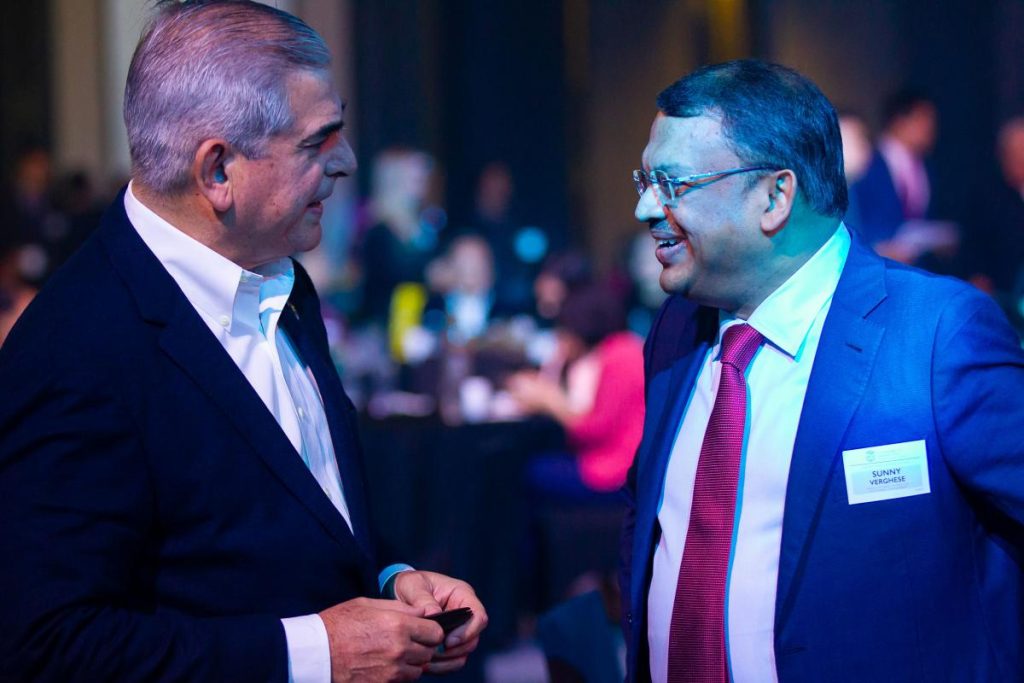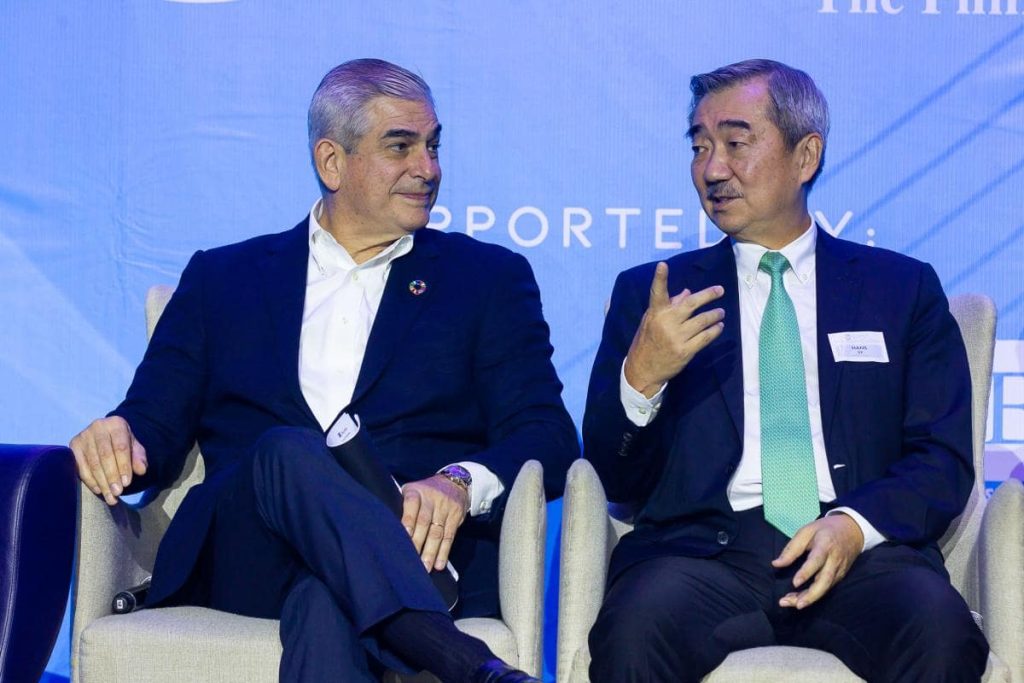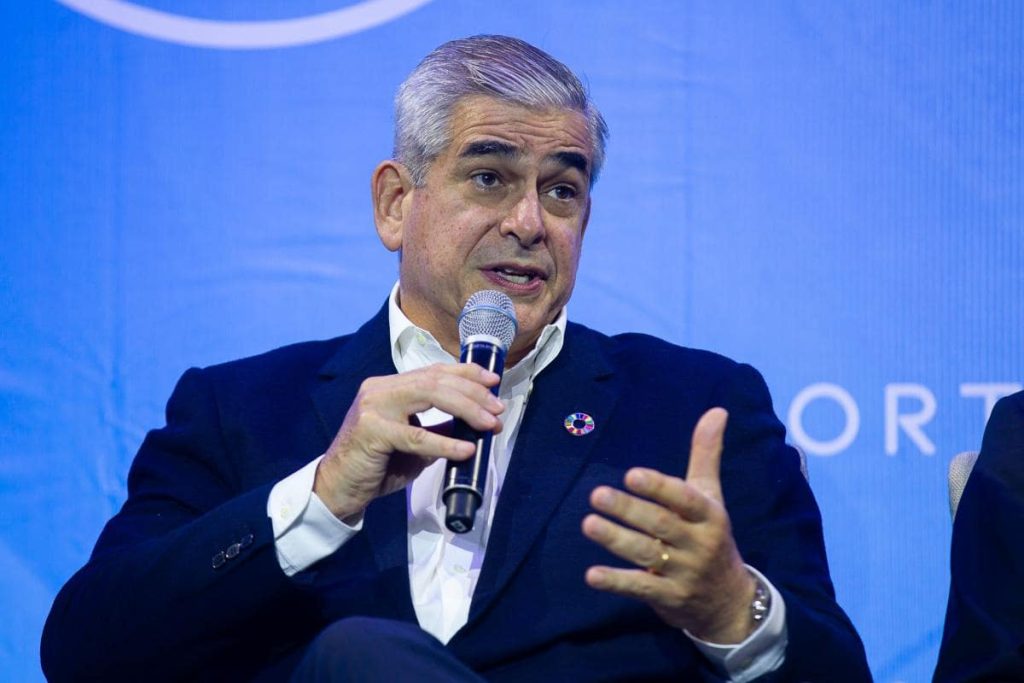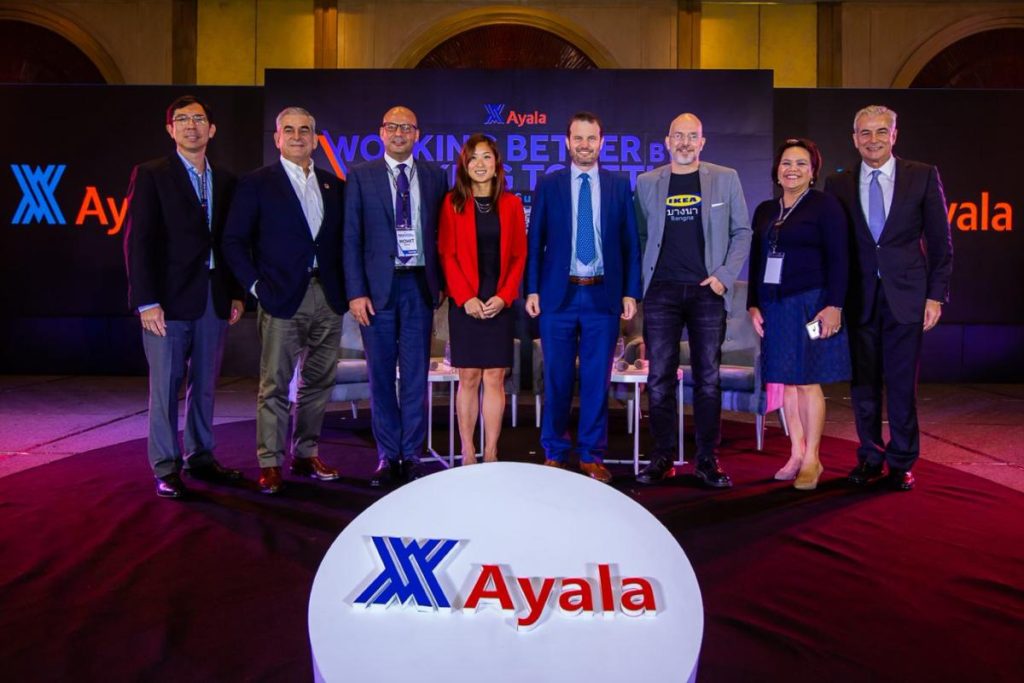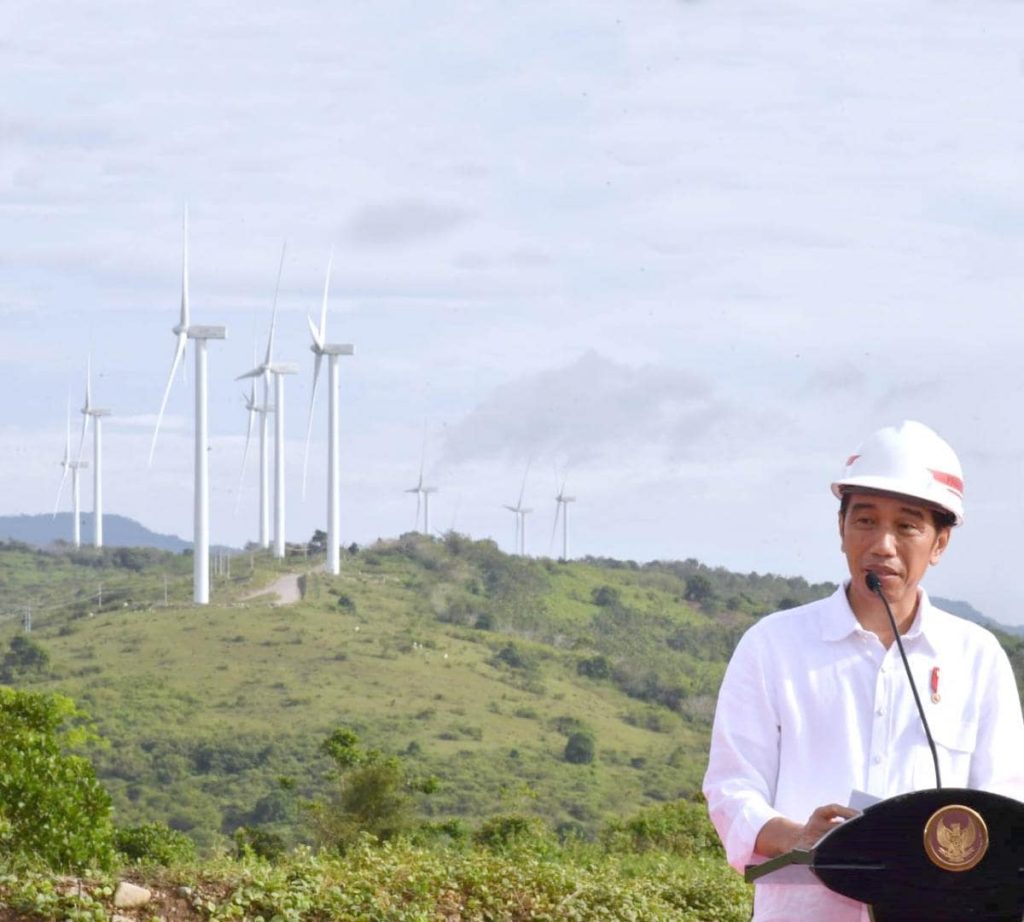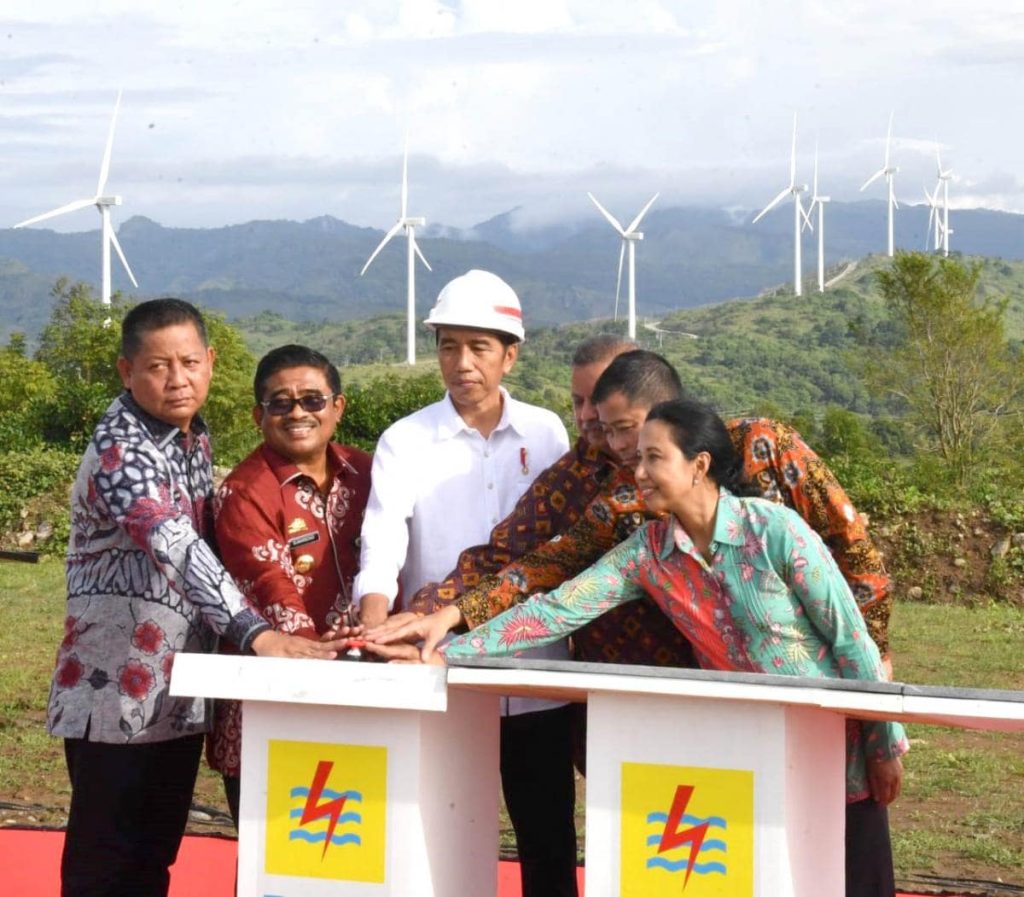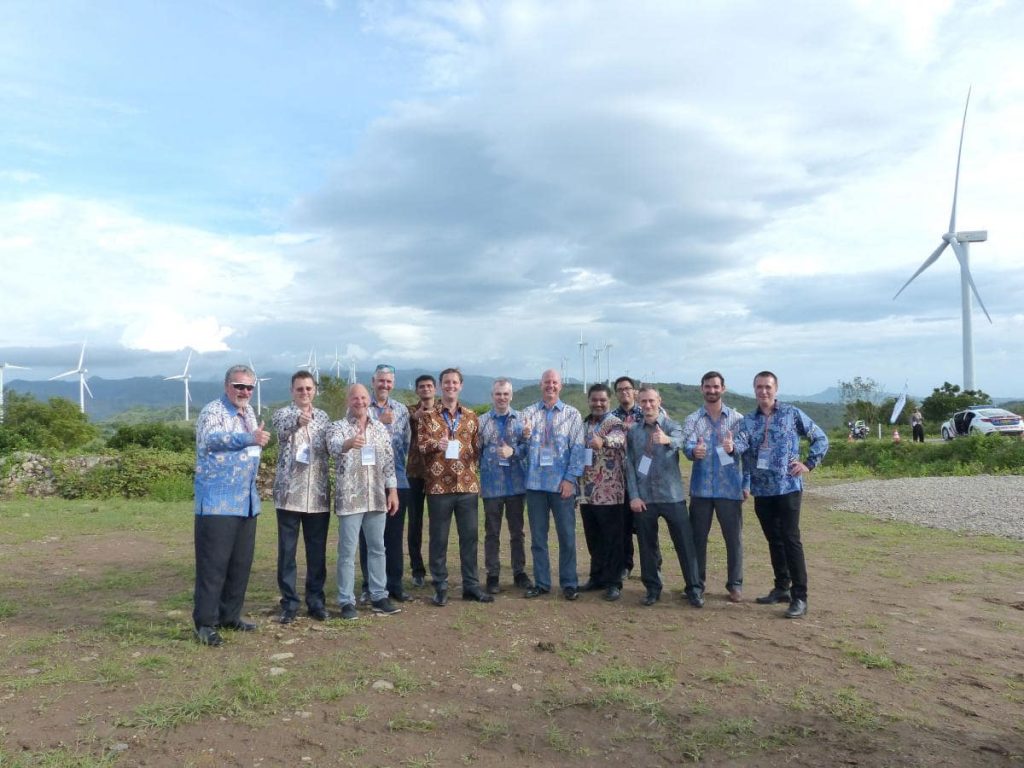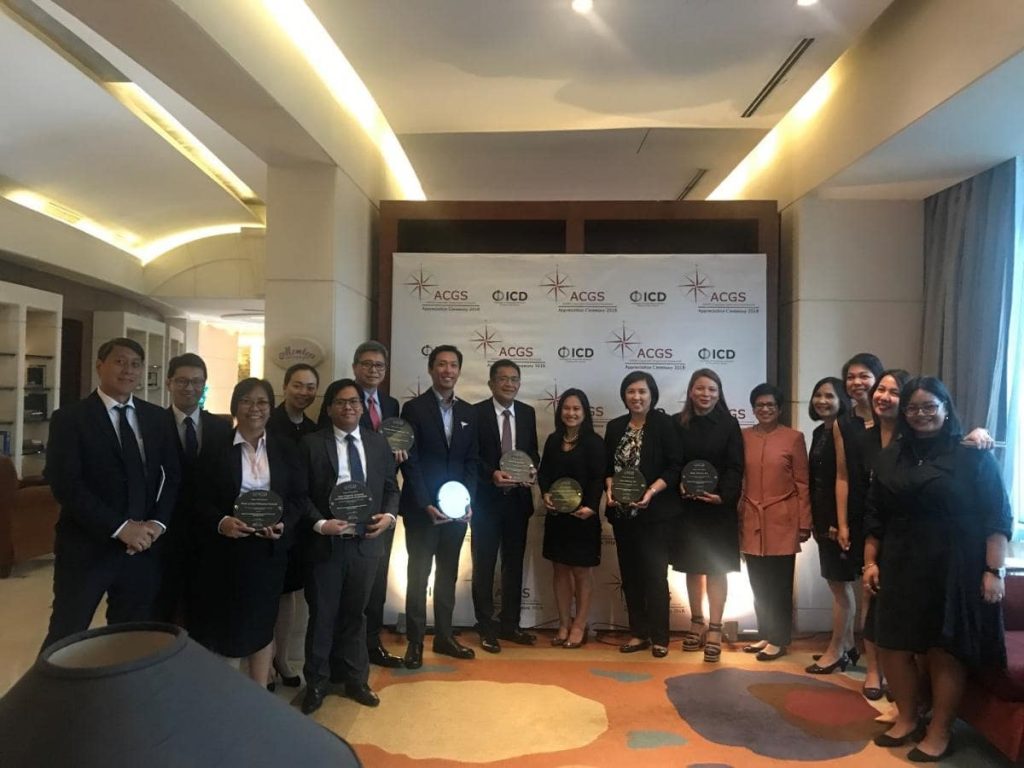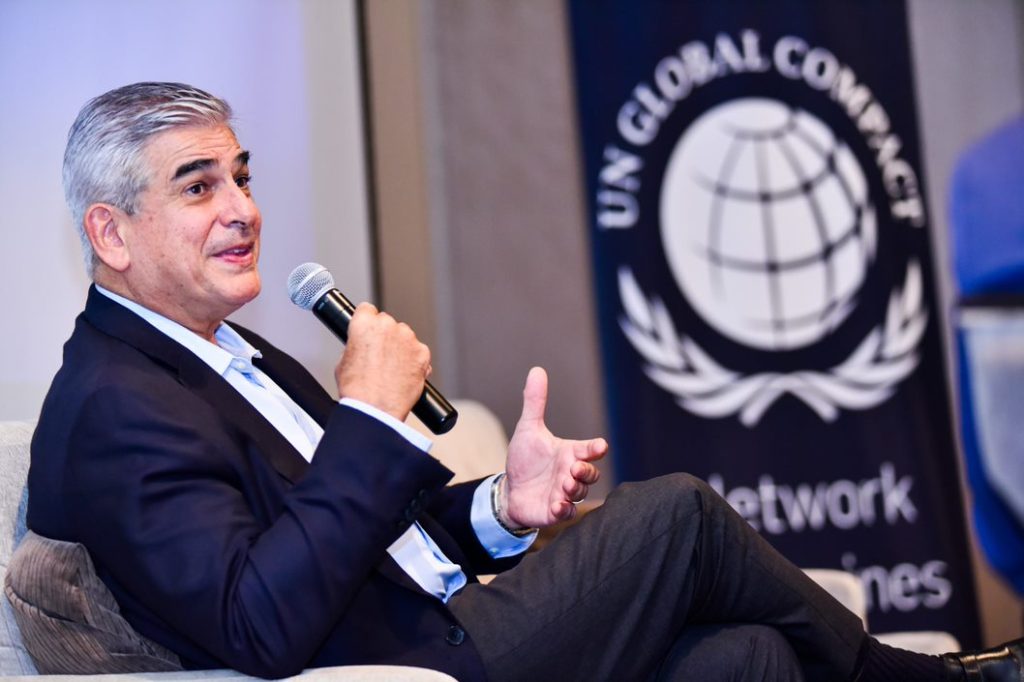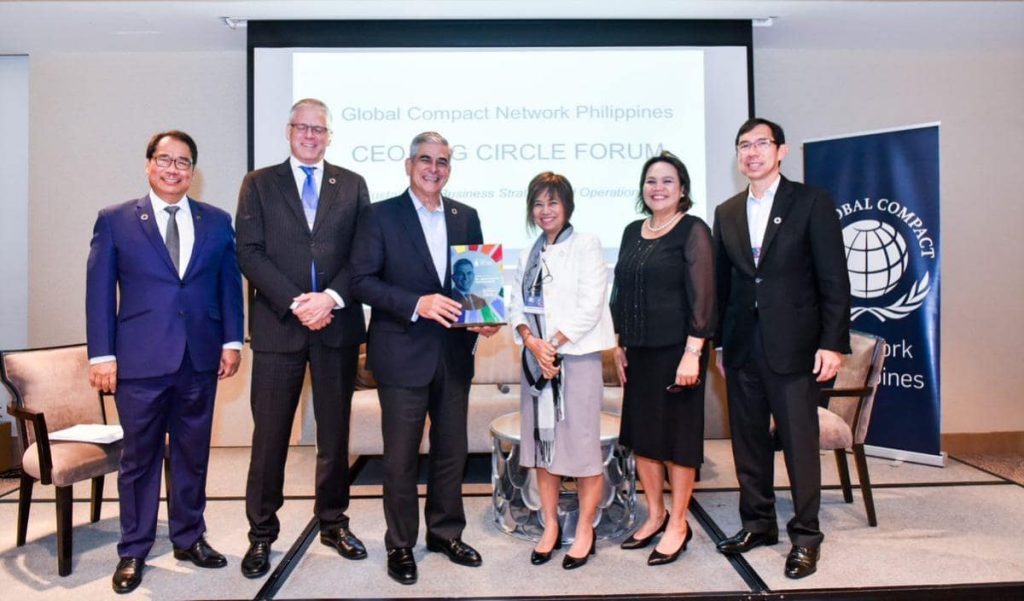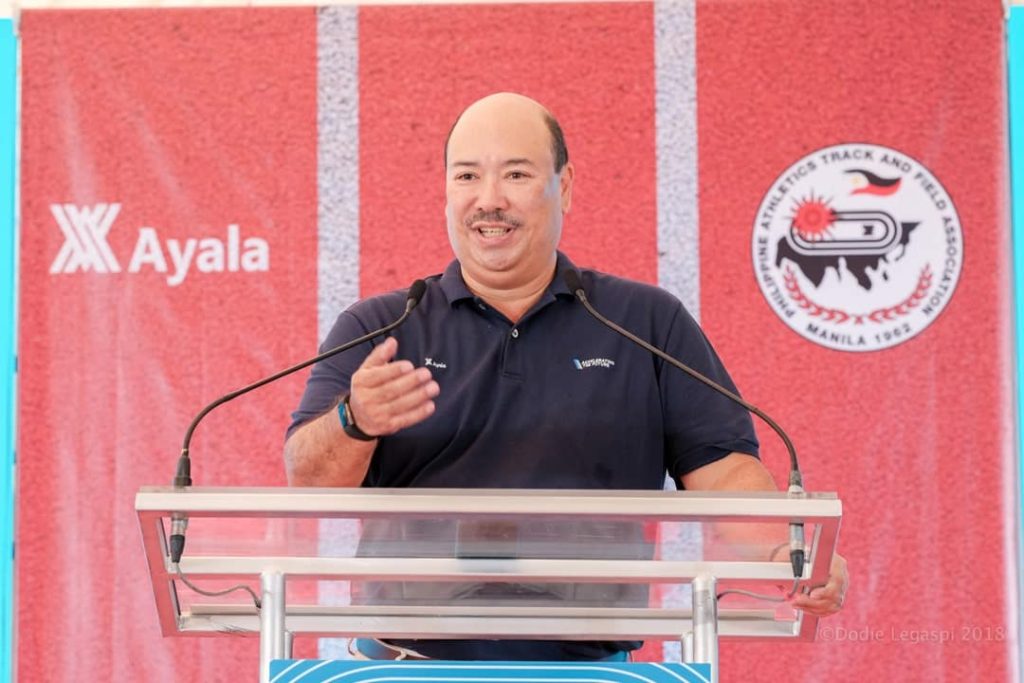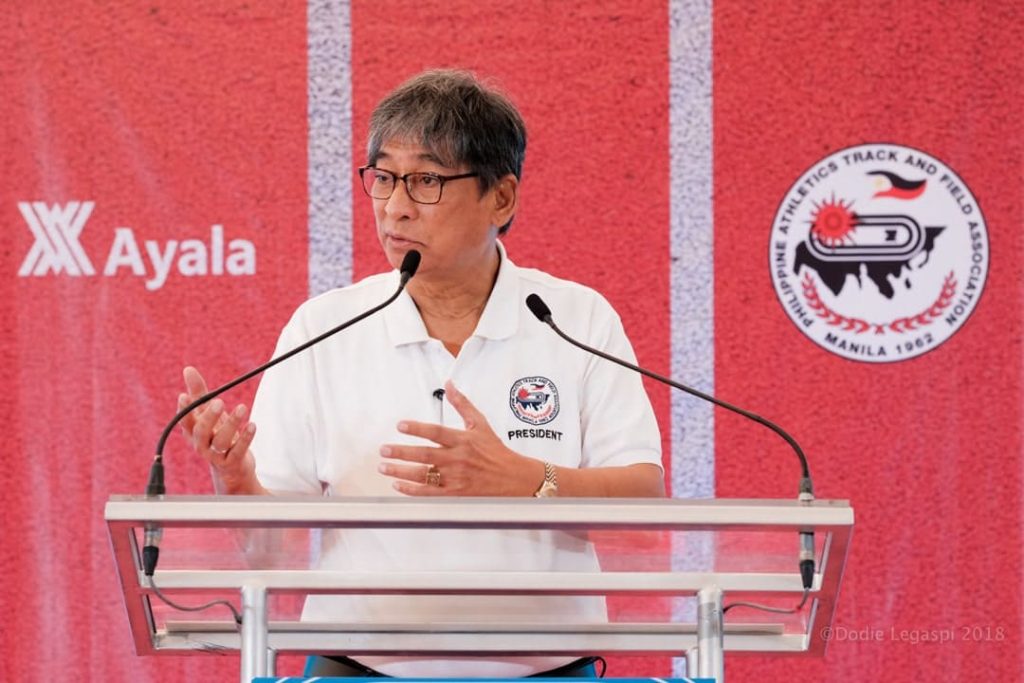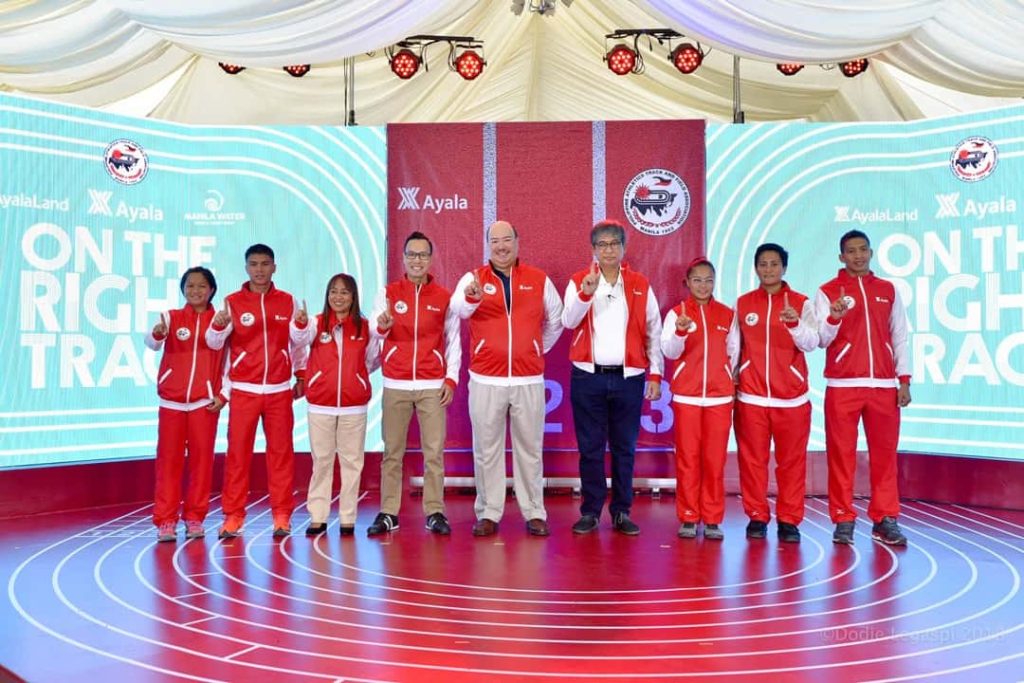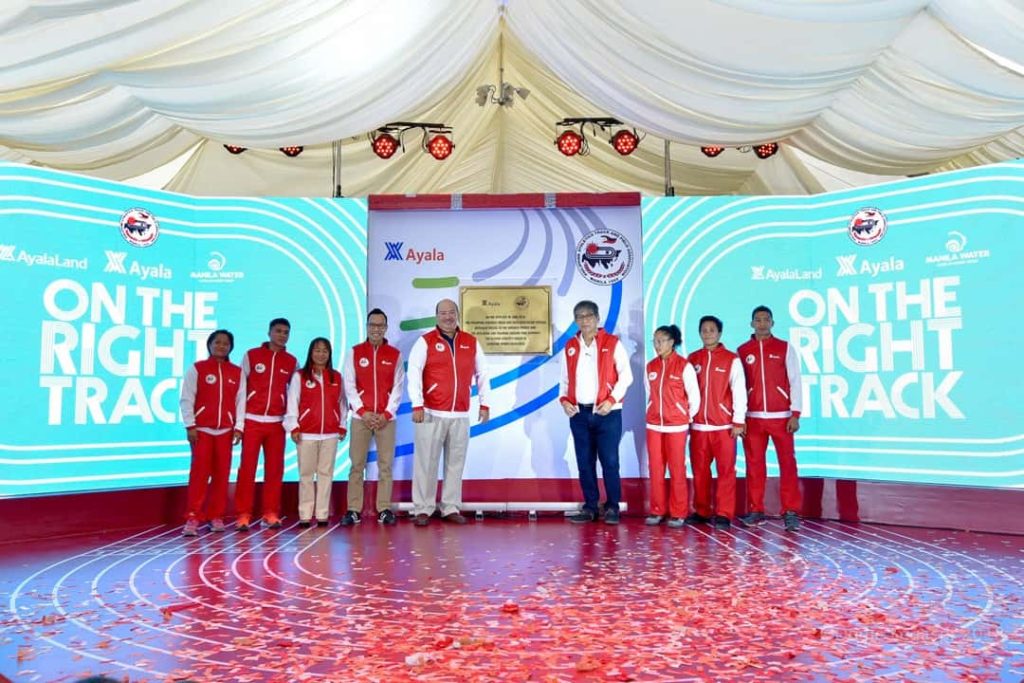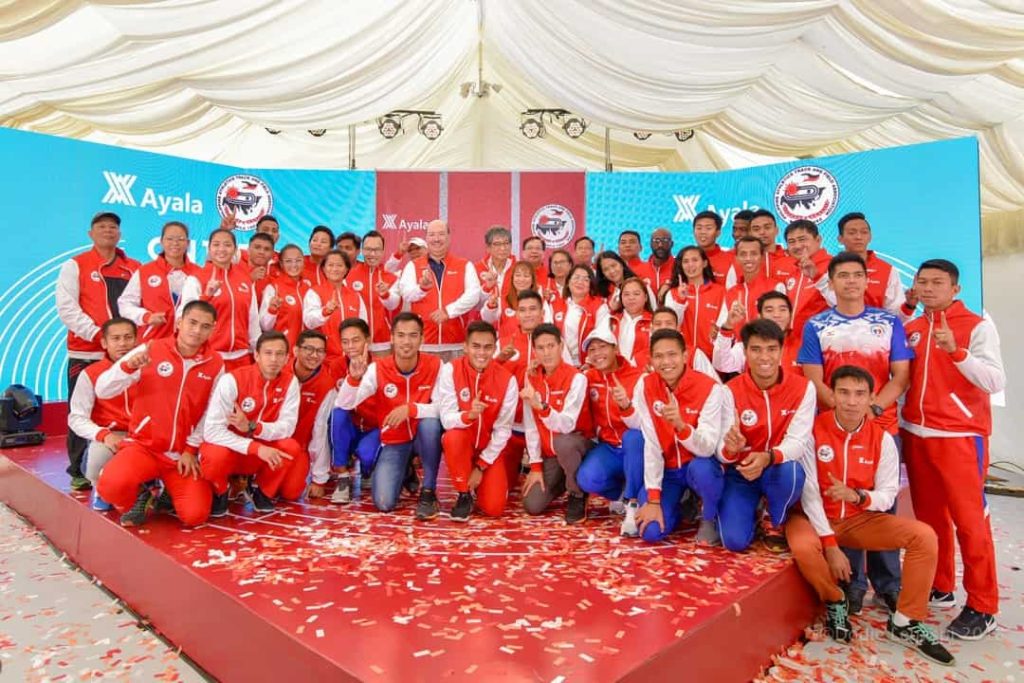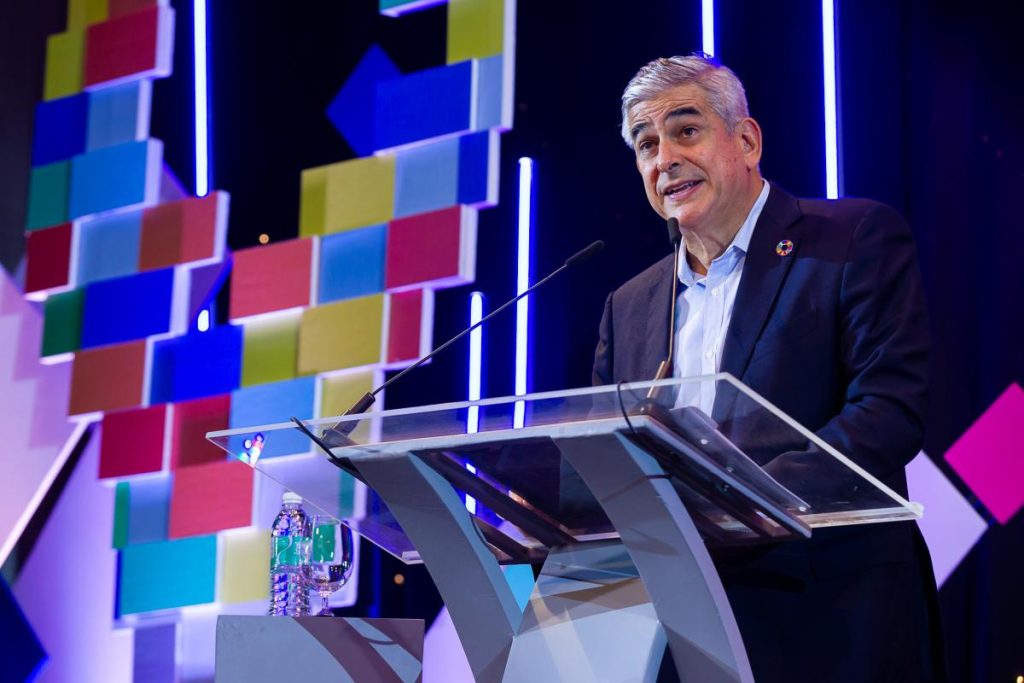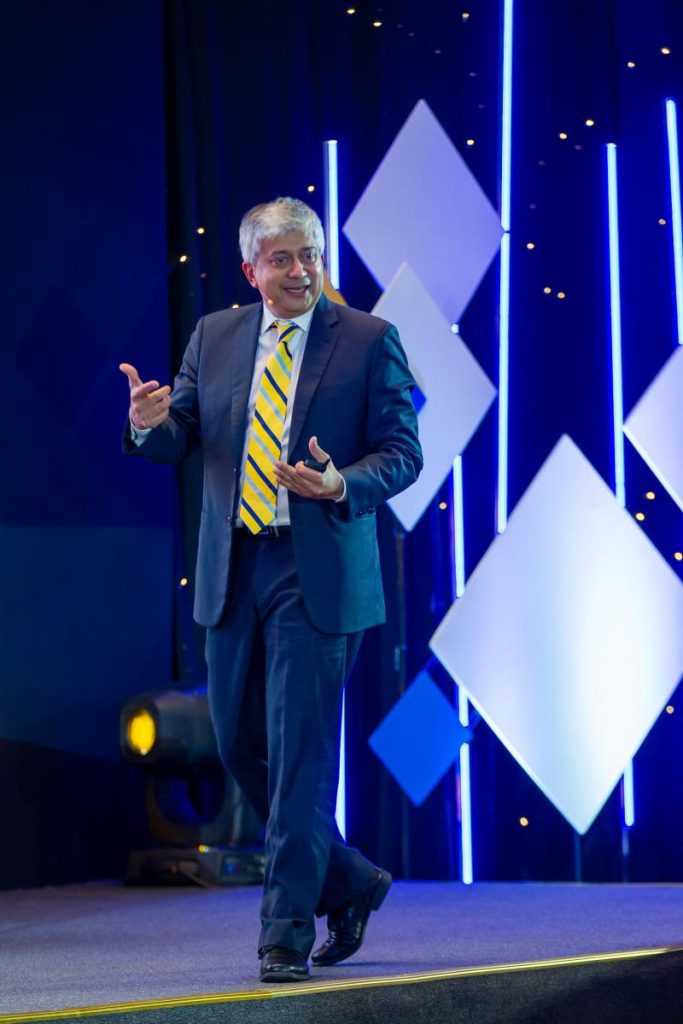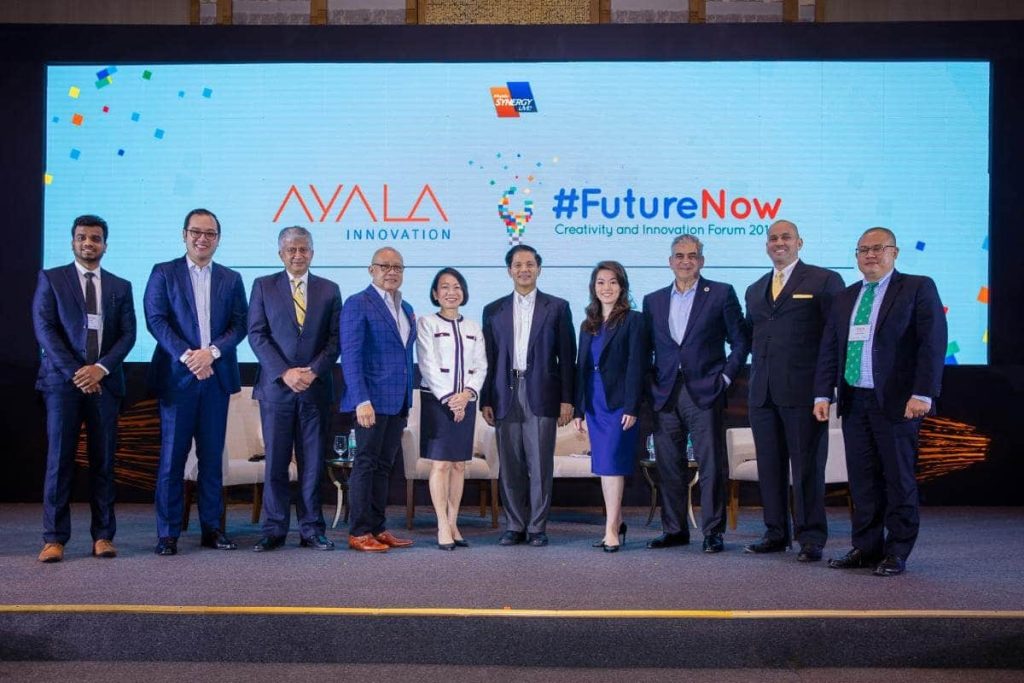JAIME AUGUSTO ZOBEL DE AYALA
GRI SUSTAINABILITY SUMMIT
PANEL: INDUSTRY PERSPECTIVE: PHILIPPINE BUSINESS PAVING THE PATH TO A SUSTAINABLE PHILIPPINES
OPENING STATEMENT
Monday, 08 October 2018 | Conrad Hotel
Good morning to everyone.
I congratulate GRI for organizing this summit and bringing together members of the private sector to push the topic of sustainability to the spotlight.
Let me start by thanking Tessie and Hans Sy of the SM Group for organizing this gathering. Sunny Verghese of Olam for being an extra ordinary entrepreneur and global citizen. His eloquent views on sustainability and it’s imperative for us in this day and age always inspire me. Also, a thank you to Bobby de Ocampo, Tim Mohen, and the Australian Embassy for their support of this conference.
Today, let me touch on the Ayala group’s sustainability journey—the thinking behind our sustainability philosophy, the tangible ways we are progressing to support this thinking, and some of the challenges that we face along the way.
Ultimately, all of us have a responsibility to address and contribute to addressing global issues that move beyond our corporate and national interests.
Let me start with the thinking behind our sustainability philosophy. In recent years, we have seen how the significant progress in our economy has yet to materialize in the lives of a majority of Filipinos. We have always believed that in a developing economy like ours, businesses play an indispensable role in addressing some of the most pressing development challenges. This responsibility does not only lie with governments.
To remain relevant, to continue building trust with communities, businesses must contribute to society as a whole, and ensure the progressive development of the markets they serve. In our case, Ayala has a presence in diverse industries that touch on human lives—housing, water, telecommunications, financial services, transport, healthcare, and education. By integrating societal needs into our corporate strategies, we believe we can play a role in alleviating some of the development challenges our country faces today.
It has become clear to us that businesses cannot operate in a vacuum, linked only to the community by the investments they make and the profits they generate. The role of private enterprise goes beyond that.
In recent years, broader communities and stakeholders have increasingly demanded more from private enterprises as well. We need only look at the pockets of social tension that have arisen around the world in protest of the current status quo, characterized by inequity, lack of opportunity, and the failure of institutions such as governments and the capitalist system to foster a more equitable world.
This thinking has, over time, led us to broaden our products and services to bring about greater economic and social inclusivity. Our group has identified opportunities for disruption in sectors that are undergoing massive challenges in affordability, quality, and accessibility.
On a personal note, these ideas began to percolate in my mind after I left business school in the 1980s. While I continue to place great value on the education I received, at the time, it also occurred to me that a significant component of my studies was not necessarily relevant to the needs of the Philippines. I would later meet a number of thought leaders who would develop these ideas cohesively, including Harvard professor Kash Rangan, who spoke on business at the base of the pyramid and, Michael Porter, another Harvard professor who developed the thesis on “creating shared value” and over time formed a global following around this thinking, including ourselves at the Ayala group.
Michael Porter defines “shared value” as policies and operating practices that enhance a company’s competitiveness, while advancing the economic and social conditions in the community where it operates.
Our group has embraced this philosophy and are increasingly aligning our profit goals with the needs of the communities we interact with, which is the second point I want to make.
Our real estate, banking, telecommunications, and water businesses continue to expand their offerings to reach more Filipinos, in support of our sustainability agenda.
More recently, we entered sectors and employed innovative business models that allow us to help fill gaps and meet the real needs of Filipinos: retail pharmacies and community-based, primary care clinics to fill healthcare gaps; affordable and quality education to enhance employability; and power, infrastructure, and industrial technologies to help sustain our country’s economic growth.
Let me cite a few tangible examples from the Ayala group, starting with our water unit. Manila Water has a flagship program called Tubig Para sa Barangay that delivers affordable potable water specifically to low-income communities, including informal settlers. Many people said the model would not work, as informal communities would not pay for piped-in water. However, Manila Water developed a new business model that included flexible financing options, a socialized tariff scheme, and shared accountability among neighbors. We are happy to report that Manila Water has succeeded in getting more than 1.6 million people into the program with 100 percent collection efficiency in these communities. Participants in the program now enjoy savings on their water costs, a reduction in water-borne diseases in their areas, and an improvement in the overall sanitation conditions in their communities.
The second example I want to make is in our healthcare unit. AC Health developed an innovative chain of community-based primary care clinics called FamilyDOC. This platform offers the services of an outpatient doctor’s clinic, a diagnostic facility, and a pharmacy in a single space that minimizes costs for families without jeopardizing the quality of healthcare received. Locating in high-density areas allows FamilyDOC to maximize foot traffic and build a relationship with the community. In addition, its prepaid and reloadable “health cards” and membership programs allow patients in these low-income communities to maximize the healthcare services available.
As a final example, we have entered the education space through the Affordable Private Education Centers or APEC Schools, a chain of secondary schools that provide quality and affordable education with annual school fees within reach of middle to lower income households. APEC strives to enhance the employability of students through programs co-designed with partners in the private sector, and makes use of technology-enabled classrooms that help to build skills sought by employers. It does this by balancing costs, without sacrificing the quality of education that students receive.
However, from our experience in the Ayala group, developing businesses for low-income communities presents a few unique challenges, which is the third and final point I want to touch on. This segment has inherent characteristics that tend to raise the costs of doing business and, while many of these are common to any business, they are more acute as the incomes of the target segments fall.
As we evolved and adjusted our own business models to be far more inclusive in meeting the needs of a much broader consumer segment, we have identified three key challenges to operating within the base of the pyramid.
First is the operational challenge. There are implications of affordability and access during the initial entry into low-income consumer markets. For example, lower disposable incomes limit the amount of a product that can be purchased at any one time. This is why “parceling” or purchase-as-needed small amounts have become popular in emerging markets.
Second is the more fundamental culture challenge as corporate decision-makers do not typically come from the base of the pyramid, making them a step removed from the realities on the ground.
Finally, there lies the challenge of improving the overall framework for doing business, with uncertainties in regulation and enforcement of policies increasing the complexity of developing inclusive businesses.
From these experiences, the single most important take away from us is the need for businesses to be open to experimentation: to looking at business models from a new and innovative perspective.
Through innovative and creative business models, we have sought to achieve a balance between our financial aspirations and our broader sustainability and nation-building goals. As our group constantly strives to seek ways to integrate our sustainability philosophy into the core of our businesses, the United Nations Sustainable Development Goals provided much-needed structure and spurred a natural transition to anchor our own goals to this global framework.
We believe that the SDGs capture succinctly the responsibility that we all have for each other—our collective goals to end poverty, protect the planet, and ensure prosperity for all. For businesses, they outline key metrics that we can use to measure and drive the positive impact we have on society.
Furthermore, the SDGs served as essential guide in our adoption of the integrated report framework that captures our company’s financial results along with our environmental, social, and governance or ESG performance. We believe that transitioning to this annual reporting framework in addition to our adherence to GRI standards helps our stakeholders better understand our shared value creation process and its overall impact on society and our country.
While we believe that this is a core value at the heart of corporate culture that guides all our employees, we continue to look for ways to ensure that sustainability is fully embedded into our business strategy today and in the future. As a group, we are undergoing the process of developing concrete sustainability targets to monitor more accurately our contributions to the SDGs.
In closing, sustainability is increasingly gaining prominence at the heart of our strategy, as we strive to put the resources, knowledge, expertise, and talent we have towards meeting the real needs of Filipinos. Our determination to create shared value is what I hope will define the company today and in the coming years. This is not a function of altruism, but rather a strategic imperative. Businesses cannot survive in communities rife with inequity and in a degraded environment.
Ignoring the challenges faced by the world today threatens our ability to create long-term value and jeopardizes enterprises, markets, and entire societies.
At Ayala, we will continue to do our part to work better and innovate further to reach more Filipinos, improve lives, and contribute to addressing global issues that now extend well beyond our corporate and national boundaries.
